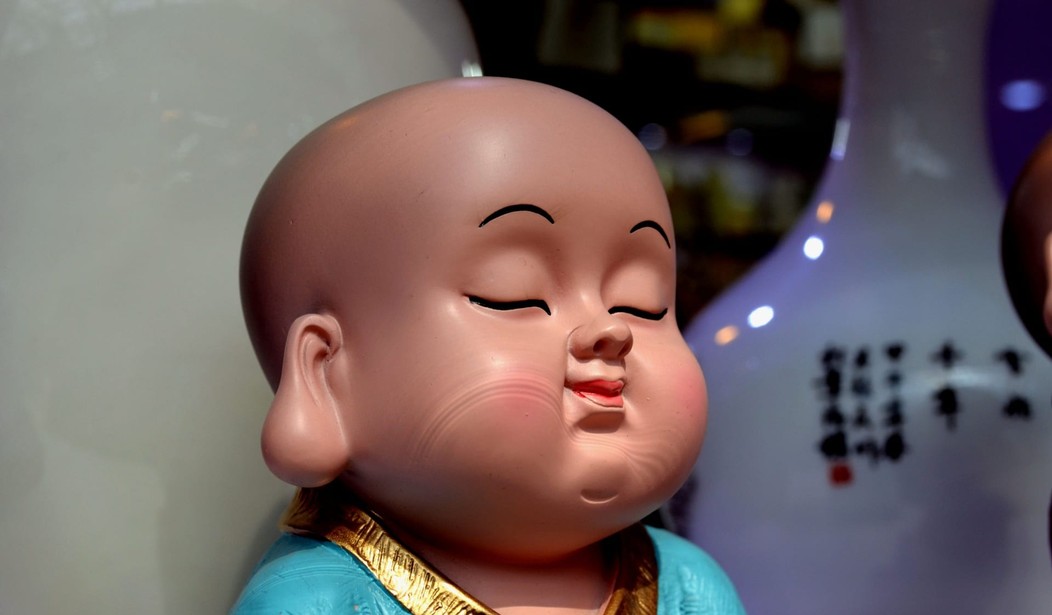According to the traditional stories, about 2600 years ago a woman named Mayadevi dreamed that a white elephant had saluted her, and then entered her side. When she woke up, she consulted the court astrologers — for she was the wife of Śuddhodana, the ruler of a state in ancient India called Kapilavastu — who told her this was a sign that she would bear a son who would be known throughout the world. Soon enough, it became clear that she was with child, and ten lunar months later she told King Sudodhana that she she would give birth soon. It was the custom at that place and time for a woman to give birth in her father’s home, so King Śuddhodana gave orders for a great procession to take Mayadeva to her father’s home in Devadaha.
As they made their way, they passed the gardens in Lumbini, and Queen Mayadevi realized that she would bear her child there. Her attendants prepared a place for her under a sal tree, and she gave birth without pain as the branches of the tree bent down to support her. She bore a son who was named Siddhartha, “the one who hits his mark” or “the one who achieves his goal,” and according to the traditions, he was already fully conscious at the time of his birth. He stood, took seven steps, lotus flowers springing from the ground at each footstep, and proclaimed:
“I am chief of the world,
Eldest am I in the world,
Foremost am I in the world.
This is the last birth.
There is now no more coming to be.”
Siddhartha would grow to adulthood, marry, have a son, then leave behind the life of prince and father to find the answer to the suffering of the world. He would be the one who awakened: the Buddha.
But that’s another story.
That, at least, is how the story is told today. The first known recorded version of the story was written in the Buddhacarita, about 400 years after his death, and it seems likely that, as the saying goes, the tale grew in the telling. The traditions tell of many supernatural powers the Buddha is supposed to have had, but Buddha himself denied he was in any way different: he wasn’t a god, he wasn’t a saint, he was just the one who found the answer.
Like Zaphod Beeblebrox, he was just some guy. He had learned how to free all beings from suffering, and then he taught what he had learned.
And that is what is hopeful in the story of the Buddha’s birth — he was simply a man, with two parents (and an elephant) who applied himself to the Great Problem, and found an answer.
Different traditions put the date of Buddha’s birth at different times, but the Japanese tradition to which I belong says this happened on the 8th of April. The festival is called “Hanamatsuri,” “flower festival.”








Join the conversation as a VIP Member